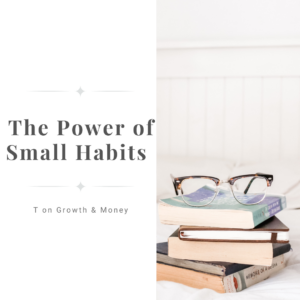 When I was 14, I went to boarding school. At first it was okay, until it wasn’t. The environment was overwhelming with too many people, some who were really mean. Life as I knew it had changed, and I hated it. If it wasn’t for my mom’s firm “don’t play with me” threat, I probably would have quit that first year. But I stuck it out.
When I was 14, I went to boarding school. At first it was okay, until it wasn’t. The environment was overwhelming with too many people, some who were really mean. Life as I knew it had changed, and I hated it. If it wasn’t for my mom’s firm “don’t play with me” threat, I probably would have quit that first year. But I stuck it out.
Over time, I adjusted. I learned to tolerate the discomfort, and eventually, I even began to like high school. Looking back, that experience was pivotal in shaping who I am today. I also realize that it left a lasting imprint, so much that I think of it every time I start something new. This is because I recognized this pattern: most times, the discomfort of beginnings scares me, which leads to my avoidance of opportunities and this avoidance surely stunts my growth.
Why We Avoid New Beginnings
Have you ever struggled to start something new? Launching a business, switching careers, studying while working, moving to a new country or town, choosing healthier habits, making better financial decisions – these are all steps toward growth. In the long run, they bring success, stability, and fulfillment. But in the short term? They feel like hard work, discomfort, and sacrifice.
So, we procrastinate. We avoid. We quit.
There’s actually a concept in behavioural economics that explains this: hyperbolic discounting. It’s the tendency to prioritize immediate gratification while discounting future benefits. We prefer smaller, instant rewards over benefits in future, even when these are significantly greater rewards. This bias leads to inconsistent decision-making, as we overvalue short-term pleasure and undervalue long-term benefits.
The effects of hyperbolic discounting show up in various aspects of life – from financial planning to health and personal growth. Researchers found that people procrastinate on saving for retirement or withdraw their pensions early because spending money now feels more rewarding than securing financial stability later. It’s why we choose a night of binge-watching over studying or indulge in unhealthy food despite knowing the long-term benefits of a balanced diet. In fact, studies show that most New Year’s resolutions don’t last beyond the first three weeks of the year, because the immediate effort of pursuing these feels much greater than the distant rewards.
But here’s the thing: in finance, compounding works better if you give the asset time to grow. This applies to money, but also to habits, skills, and relationships. The measure of a fulfilling life isn’t found in a handful of grand moments. It is built through small, consistent actions over time.
If you zoom out, life follows a normal distribution – most of it happens in the day-to-day, seemingly mundane moments. The breakthroughs and highlights of life are rare, but the habits you build in the ordinary moments are the ones that shape your future. The gym session you take today won’t transform you overnight, but a year of showing up will. The money you invest today will unlikely build wealth, but steady, disciplined investing will.
How to Overcome Hyperbolic Discounting
Since our brains are wired to favour immediate rewards, overcoming hyperbolic discounting requires intention. Here are a few ways to shift your mindset:
- Use commitment devices – Automate your savings, schedule workouts, or set deadlines to remove willpower from the equation.
- Reframe your mindset – Instead of focusing on what you’re sacrificing now, focus on what you’re building for the future.
- Stack small wins – Tiny successes build momentum. Break tasks into smaller steps, create a checklist and work towards ticking it off consistently, not perfectly.
- Give the gift of time – Habitual success may seem small in the moment, but those little moments of effort accumulate into real growth. Do not despise small beginnings, stay the course.
At the end of the day, the big things in life are just the small things, repeated over time.
Leave a Reply